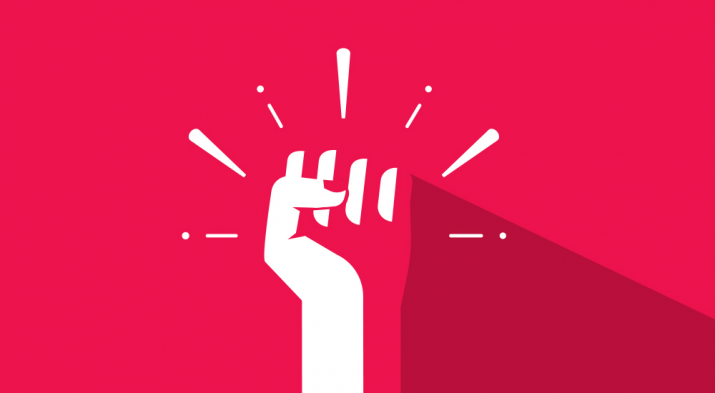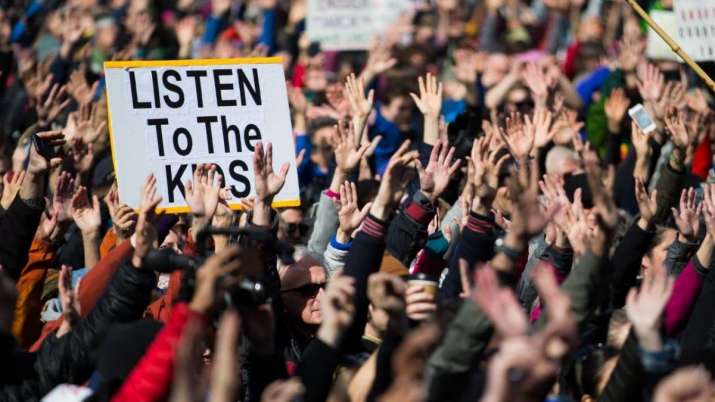FEATURES|THEMES|Commentary
Buddhistdoor View: Finding the Right Balance with Social Justice Causes
 From medium.com
From medium.comJune was the globally recognized Pride Month for LGBTQI people. It was a pleasant coincidence that on 13 June, the Supreme Court of the United States ruled that gay, lesbian, and transgender individuals cannot be discriminated against in the workplace based on their sexual identity. It was striking that the ruling came out 6-3 among the Supreme Court’s justices, a firm majority, with Neil Gorsuch, a Trump appointee, writing the majority opinion. Amid unfolding civil strife in the US, the intensification of the COVID-19 pandemic and the Trump administration’s apparent surrender to its ravages, and the ongoing Black Lives Matter movement, there was scattered debate among the Twitter community—half in jest, but others making a salient point—as to whether Pride Month was being overshadowed by “more urgent” concerns.
This is probably a false dichotomy. The connection between LGBTQI rights and the Trump administration’s actions over the past month is clear and darkly poetic: the same day that Pride Month kicked off, on 1 June, Trump attempted a photo op outside a church that went so awry that it will forever be associated with theocratic-fascist undertones in the midst of a bitterly divided society, police violence, and martial law. There is a worsening situation around COVID-19, from the Trump administration’s mistakes to the consequences of the mishandling of the pandemic. These issues amplify already interconnected structural problems in the US, which also exist to varying degrees across the world. A considerable rise in unemployment (at Great Depression-era levels of over 15 per cent in the US) will be crippling to already struggling working class families, particularly among minorities. Economic catastrophe and political paralysis are unfolding alongside the gravest ecological crisis of our time: an acceleration in global warming, with the Arctic particularly hard hit. Warning models predict that the Arctic’s permafrost thaw and sea ice and ice sheet melting, taken together, herald impending, total breakdown of the planet’s climate as we know it.
In other words, Pride Month 2020 unfolded in a period of momentous change, and it is difficult not to be swept up in the turbulence of so much happening. Each of these issues—all of them with real life consequences—is meaningful, important, and urgent. Just a few more that developed with particular speed and momentum in June: the continued bombing of Yemen by Saudi Arabia; the explosion of COVID-19 in the US and the transformation of the pandemic into a culture war; the imposition of Hong Kong’s National Security Law by Beijing; Israel’s intended annexation of more Palestinian territories, more deaths of Black Americans at the hands of police; and directly related to this, the toppling (or debate on toppling) of statues associated with slavery and colonialism in Africa around the Western world.
The myriad causes fighting against structural injustice or violence can feel overwhelming, and part of this sense of overwhelm is not much different to the now-common experience of feeling bombarded 24 hours a day, seven days a week by news from around the world, much of it bad and impossible to resolve without concerted, often absent moral will and political leverage. Being exposed to this feeling is common to all of us, especially if we regularly use social media. It is similar to being overwhelmed by workplace stress or by family concerns—emotional overload, with fear, panic, and anxiety being natural results.
It is crucial to first recognize and embrace the feelings that we experience when devoting our concern (and sometimes, time, money, and energy through activism or donating to causes) to social justice. Too often, we pretend that we can “take it,” or that it is not really affecting us.
 From youtube.com
From youtube.comIn a recent article, Silicon Valley technology entrepreneur, author, and meditation teacher Erric Solomon advised that we must try to know ourselves, to know what we feel, and to create space for the fear to be disconnected from the story that our minds have associated it with. For example, the anxiety we feel from reading a news report on a bombing:
When you place your attention on the feeling, instead of a story, it becomes a mere sensation, or you could call it energy. Inside the fear is energy, the expression of our wisdom, our love, our intelligence. Within our awareness, all these things are there, confusion and wisdom. By placing your attention in a very specific way, you can uncover the wisdom that is the basis of difficult emotions, even panic. All you have to do is feel the energy of panic in our body, rather than thinking about the story in your mind. . . . After you become used to just feeling the sensation of the anxiety, rather than the story, you will discover a well-spring of resilience to help you make it through all the challenges of this current situation. (Buddhistdoor Global)
Anger, outrage, cynicism, mistrust, fear, sadness, incredulity, and grief. A diverse mix emotions that we can feel in response to the tsunami of causes that cry out for attention, but as Buddhistdoor Global columnist Vanessa Sasson observes:
We need—to quote some of the earliest Buddhist materials—to watch our breath, that which is so small as to be imperceptible. We need to focus on the small and give it the respect it deserves if we ever hope to be able to manage some of the big. It is the oldest teaching in the world, and yet somehow it is the one teaching I forget the most. (Buddhistdoor Global)
Everything is connected, including our own lives, the trajectory of the world, and the many causes we can only balance in our consciousness and conscience by being mindful. We must create the infinite space within ourselves that can hold all these regional and global concerns that involve millions or even billions of people and allow ourselves to “step in and step out” of the stories themselves while taking care of the energy they create within us and turning it into “real power,” or “Right Power,” as Thich Nhat Hanh noted more than a decade ago:
The real power of the Buddha was that he had so much love. He saw people trapped in their notions of small separate self, feeling guilty or proud of that self, and he offered revolutionary teachings that resounded like a lion’s roar, like a great rising tide, helping people to wake up and break free from the prison of ignorance. (Plum Village)
See more
Supreme Court Delivers Major Victory To LGBTQ Employees (NPR)
Siberia heatwave: why the Arctic is warming so much faster than the rest of the world (The Conversation)
The Right Kind of Power (Plum Village)
Related news from Buddhistdoor Global
American Buddhist Confederation’s Ven. Ming Yu Recognized for Distributing Emergency PPE in NYC
Korean Buddhists Join Fellow Religious Leaders to Call for Ban on Discrimination Against Minorities
Los Angeles Buddhists Perform Silent Meditation Walk in Solidarity with Anti-Racism Activists
Related features from Buddhistdoor Global
Coping with Fear, Anxiety, and Panic During the Pandemic
Wrestling with the Big and the Small
How to Be a Buddhist Protester
Buddhistdoor View: Spirituality, Empathy, and Power – Goods to be Reconciled














